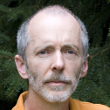Course Staff
Felix Kienast
Lead Instructor & Adjunct Professor for Landscape Ecology ETH Zürich & WSL
Felix Kienast has been Adjunct Professor for Landscape Ecology at the Department of Environmental Sciences at ETH Zurich since March 2007. He holds a PhD in Geography from University of Zurich. In the 1980s he pioneered Landscape modeling research at the Oak Ridge National Laboratory, USA. Since 1988 he has been conducting research at the Swiss Federal Institute for Forest, Snow and Landscape Research WSL on (a) GIS-assisted landscape models designed for simulating potential future landscape development and associated landscape services; (b) the interactions between humans and landscapes and (c) multidisciplinary landscape monitoring. Felix Kienast is actively involved in several e-learning activities. Felix Kienast relies on an extended international network of scientific connections due to the activities as President of the International Association for Landscape Ecology (IALE) (2011-2015). He served in several Editorial Boards (Landscape Ecology, Environmental Management, GAIA, Geographica Helvetica). His publication record consists of more than 140 papers and communications in the field of Landscape Ecology. He is editor of the Springer Landscape Series Book No. 8 entitled “A Changing World – Challenges for Landscape Research”.
Gregor Martius
Course Designer and Coordinator, ETH Zurich & WSL
Gregor Martius holds a Master Degree in Environmental Science and in Software Engineering. He has specialized in the design and development of innovative educational projects. For this MOOC on Landscape Ecology he has contributed to the course design, the multimedia production and the overall project coordination.
Janet Silbernagel
Professor, University of Wisconsin–Madison
I am a professor for landscape ecology with a design background, specializing in landscape conservation strategies, applying landscape ecological theory, scenario modeling, and geospatial analyses. I am director of professional graduate programs for the Nelson Institute at the University of Wisconsin-Madison, with a strongly international focus. I am President-elect of the US Chapter of the International Association for Landscape Ecology , and co-editor of the Springer Landscape Series. In scholarship practice, I design and evaluate conservation strategies for nature and people using robust geospatial analyses, tools, scenario modeling, and citizen science. This expertise stems from my education in forest and cultural ecology, landscape ecology, and landscape architecture. I have an established career beginning in forest management, applied landscape ecology, and landscape architecture with the US Forest Service, followed by over 20 years of academic teaching and research.
Sima Fakheran
Professor, Isfahan University of Technology
Dr. Sima Fakheran is Assistant Professor of Environmental Sciences at Isfahan University of Technology, Iran. She is Vice President of International Association for Landscape Ecology (IALE). She did an outstanding job in setting up the Iranian regional chapter of IALE and for promoting the science of landscape ecology in Iran. She is also President of IALE-Iran since 2012. Her research interests include: Landscape Pattern Change and its Impacts on Biodiversity, Ecological Impacts of Road Networks, Corridor Design, and Conservation Planning. She did her PhD at Universality of Zurich, Switzerland. Graduating from two different continents in different languages, environments and cultures; consulting many students, founding and working in several professional organizations; sitting on the board of directors for IALE-Iran, department of environmental sciences at Isfahan University of Technology, Director of Swiss desk as Leading house for developing academic cooperation between Iran and Switzerland; and many other environmental activities provided her with a unique set of skills to listen, understand, solution, plan, develope and deliver. She is passionate about helping organizations to foster development and innovations through international networking, communication and learning.
Loïc Pellissier
Professor, ETH Zurich & WSL
Loïc Pellissier has been Assistant Professor (with Tenure Track) of Landscape Ecology at the Institute of Terrestrial Ecosystems at ETH Zurich and at WSL since July 2015. Loïc Pellissier studied at the University of Lausanne and completed his PhD in 2012. He then led a postdoctoral research project at the Arctic Research Center (Roskilde), which is affiliated to Aarhus University in Denmark. From 2013 to 2015 he was research group leader at the University of Fribourg. Loïc’s research is focused on understanding and modelling past and future landscape dynamic and its link to biodiversity. His research provides fundamental knowledge in ecology and evolution of landscape biodiversity patterns and uses this knowledge to improve sustainable management of natural resources.
Harini Nagendra
Professor, Azim Premji University
Harini Nagendra is a Professor of Sustainability at Azim Premji University, Bangalore, India. She is an ecologist with over 25 years of experience working in the global south. Her main focus of interest is to understand when and why humans act as positive agents of ecology and conservation in some instances, and negative agents in others. Towards this, she has worked in a variety of contexts in forests and cities of South Asia and globally. Her research is interdisciplinary, and relies on a number of methods including satellite remote sensing and GIS, field studies of biodiversity, archival research, institutional analysis, and community interviews. Prof. Nagendra has conducted research and taught at multiple institutions, and received numerous research awards including a 2017 Clarivate award for interdisciplinary research in India, a 2013 Elinor Ostrom Senior Scholar, and a 2006 Cozzarelli Prize from the Proceedings of the National Academy of Sciences USA. Apart from over 150 scientific publications, she writes widely and communicates her research with the public through Indian newspapers, magazines and science blogs, and engages with international research, including being on the Steering Committee of the Programme for Ecosystem Change and Society and a Lead Author on the 5th IPCC Report - Working Group III as a Lead Author. Her recent book “Nature in the City: Bengaluru in the Past, Present, and Future” (Oxford University Press India, 2016) examines the transformation of human-nature interactions in Bangalore from the 6th century CE to the present, addressing the implications of such change for the urban sustainability of fast-growing cities in the global South.
Josef Senn
Lecturer, Swiss Federal Research Institute WSL
Josef Senn is a researcher at the Swiss Federal Research Institute WSL, Birmensdorf, and a Lecturer at ETH Zurich at the Department of Environmental Systems Sciences. His main research interests are in in the fields of plant-herbivore interactions, wildlife ecology, and conservation biology. He is closely collaborating with the Isfahan University of Technology, Iran, where he is an Adjunct Professor at the Faculty of Natural Resources. Since 2007 he is a member of the federal scientific advisory board for the Convention on International Trade in Endangered Species CITES.
Shekoufeh Nematollahi
PhD Candidate, Isfahan University of Technology
I`m Shekoufeh Nematollahi, PhD student of Environmental Sciences and Land Use Planning at Isfahan University of Technology (IUT), Iran. In my PhD thesis I assess the ecological impacts of road networks on natural habitats based ecosystem services modeling. In this MOOC I contribute to a case study on the ecological impacts of road networks. I will teach how to assess the impacts of roads on wildlife habitat using advanced landscape indices. With this knowledge mitigation and conservation measures can be planned on a scientific basis.
Selina Gosteli
Course Assistant
Hi, I am Selina and I am currently finishing my master studies of spatial planning at ETH Zurich. Before this I studied environmental sciences in my bachelors and that’s where I first learned about landscape ecology. Landscapes are still an important part of my studies but I focused more on the planning than the ecological point of view. For this course I mostly helped with some case studies and reviewing the content to make sure we can provide a high quality course for you. Together with the other course team members I tried to create varying exercises that I hope you will enjoy doing while learning quite a bit about landscapes.










